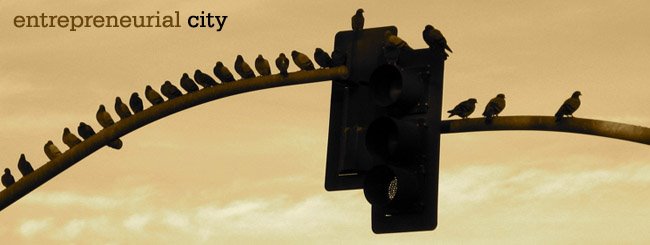
He was in the dentist office when he saw an article about the twin towers in NYC. He drew a line to connect their roofs. His dream was to walk across this line. He had felt they were now unknowingly building these structures solely for him. But these twin towers instead became the symbol of an entire generation precisely because of the bodies that did ultimately fall from their towering heights.
Phillipe Petit was not one of them. He walked back and forth eight times over the course of 40 minutes across the wire he fastened between the WTC towers. He trained at Notre Dame, a bridge in Sydney, a park outside Paris. Where did the money come to do all this? Why did all of his relationships--both intimate and platonic--end immediately after this feat? Unfortunately for me, the film does not go into these details. We are told Phillipe is particularly upset by the media's immediate response, they want to know 'why did you do this?' He tells us this is an uniquely American question, only Americans would watch this act of beauty and immediately ask why. There is no why, he tells them.
But perhaps the question can be changed around. That is to say, who else in the entire world could see the value of 'art for art's sake' in 1974 other than a well-to-do Frenchman? Children have been napalmed in Vietnam, a civil rights movement had brought entire continents together, a national recession had brought homelessness into figures widely beyond those known in any other of the world's metropols. All of this was in ear shot when Phillipe Petit shifted his weight from the left foot firmly on the roof to the right foot now slightly touching the suspended wire half a mile in the air. In total concentration, he balanced above it all in the name of 'poetry,' 'the sublime,' 'the utopian boundlessness of human potential.' This was one last outcry of nineteenth century humanism.
What can we make of this today? Do we call this unfettered narcissism of a sadly disconnected madman, or rather a statement about how much more would actually be possible within all of us if we we were not hourly burdened with the numbing obligation to earn a living?




1 comment:
If you look across the horizon and see something glowing in the dark, you will do whatever you can to get closer to it, to see what it is.
If you are an acrobat, you will test yourself to see how well your steps flow smoothly from one pillar to the other in a lyric dance.
Our species is constantly looking for something new, something different, something you have never ever seen before. Why? Because we are an inquisitive and cannot live without novelty.
This is how our buildings, our songs, and our dances came to be.
Post a Comment